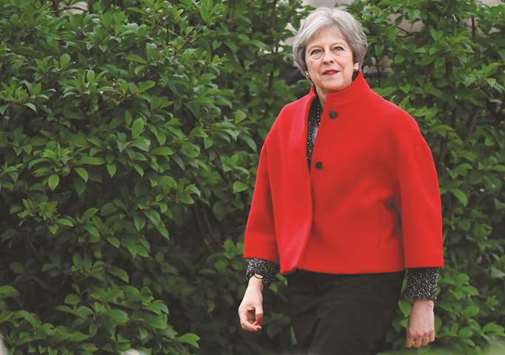When it comes to Brexit, Parliament – not Theresa May’s government – is the ultimate boss. And in the end, lawmakers could decide to keep the UK in the European customs union against the prime minister’s will.
That was the logic of David Davis, the UK’s chief Brexit negotiator, in evidence to a parliamentary committee in London yesterday. And it has major implications for the divorce deal with the EU that might follow.
Whether the UK stays in the customs union goes to the heart of what type of Brexit the country will get. May and her Brexit-supporting Conservative colleagues want to leave the EU’s tariff regime to allow the UK to break free of the bloc’s trade policy and strike new deals with countries including the US.
But pro-Europeans and business groups want to keep the UK in the customs union to ease the flow of goods across the border. They say leaving it would create major problems for trade and hurt the British economy.
The issue could come to a head next month, when the House of Commons is expected to vote on whether to stay in the bloc’s tariff regime. Rebels in May’s Conservative Party are preparing to vote against her plan to leave it.
Davis said he wouldn’t speculate on “hypotheticals,” including what will happen if Parliament defeats the government. In any case, Davis said he expected the government’s policy to be approved by legislators.
That wasn’t enough for Parliament’s Brexit committee chairman Hilary Benn. “But if it isn’t, you’re going to have to respect it, aren’t you?” he asked Davis of a potential parliamentary defeat.
“The government always respects Parliament, but I expect the government’s policy to be upheld,” Davis replied.
In politics, expectations matter but they are not the same as guarantees.
Davis was later asked if there’s a danger that the UK would have to stay in the EU’s customs union beyond the 21-month transition period if new border arrangements were not ready in time.
Davis said there was a “risk” that French or Dutch border checks would make life difficult if no new system for smooth operations is ready to introduce – but he insisted he is talking to EU governments about this issue.
“I do not expect the solution to that to be extension of membership of the customs union,” he said. “I would view that on my part as a failure.”

Britain’s Prime Minister Theresa May and her Brexit-supporting Conservative colleagues want to leave the EU’s tariff regime to allow the UK to break free of the bloc’s trade policy and strike new deals with countries including the US.
